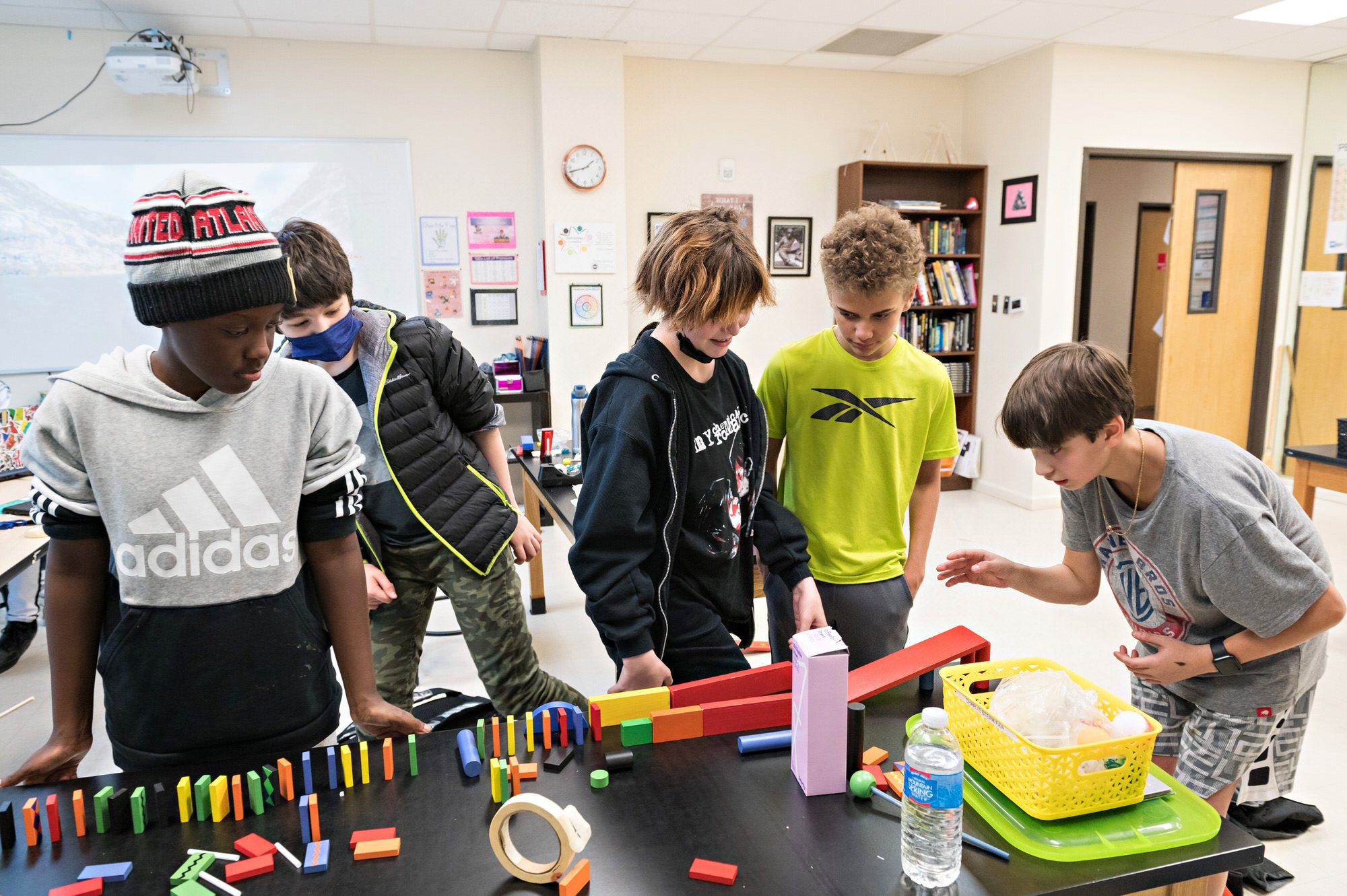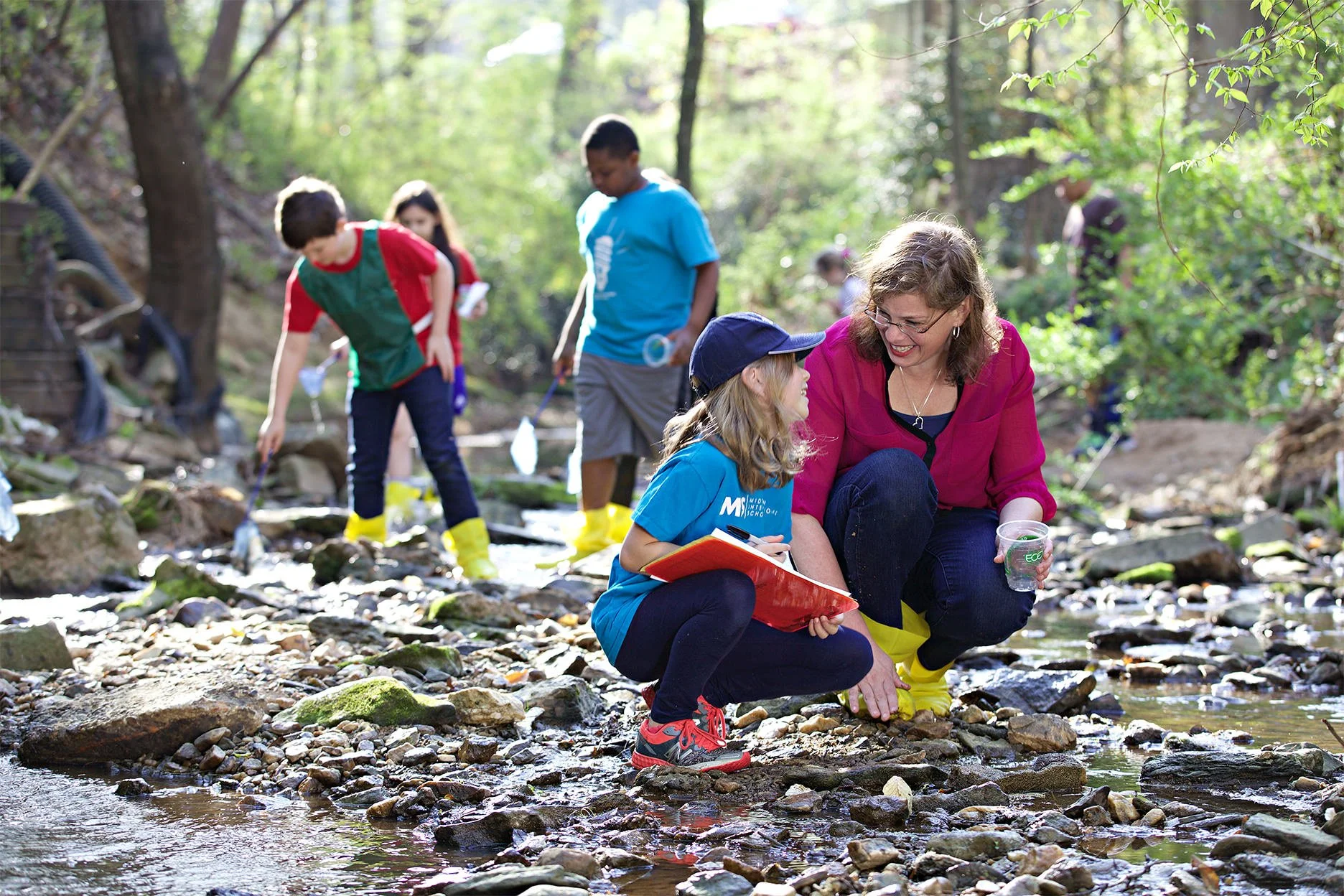
Approach to Gifted Education
MIS provides a safe space for taking academic risks.
We focus on identifying and employing student strengths.
We deemphasize traditional grading and test scores in exchange for depth and complexity of content.
MIS understands that giftedness can present in many forms, and sometimes doesn’t look like the traditional “high-achiever”. We invite you to take the 6 Types of Gifted Learners quiz to discover how how giftedness can present, and attend our webinar Unlocking Potential: Understanding Gifted Learning to find how to support your gifted learner.
We are equally committed to serving gifted students from historically marginalized groups who are frequently overlooked for academic opportunities.
There is something magical about a place that gives every human being that enters its doors a sense of freedom and value…a space to be true to what they know is right, to be true to themselves and their own growth and learning. Our students and faculty experience this as engagement, as discovering their voice in making the world a better place for all. Faculty members refer to themselves as equally curious co-learners, who foster a sense of mutual respect and community in every classroom and common space. MIS students think, debate, problem solve, synthesize, and thrive as they tackle real-world challenges in classes, clubs, and travel.
Myths about giftedness and gifted students can influence the educational approach we choose for our children.
Here are a few of the facts we have uncovered throughout a decade of serving gifted learners:
Myth #1:
Gifted students will make it on their own without educational modifications.
Fact:
Because gifted students learn at a different depth and pace, traditional classrooms can lead to boredom, diminished thirst for learning, disengagement from school, and the evolution of poor work habits. Working alongside teachers who have been trained in gifted education, students’ intellectual, as well as social and emotional, needs are met.
Myth #2:
All students are gifted at something, one simply needs to discover their talent.
Fact:
Every student is unique and has the potential to be great at something, but this isn’t the same as being gifted. In a society where the term “gifted” alone evokes strong feelings, parents often refrain from publicly admitting their child is gifted. Because these students have different needs, it is imperative that these parents are able to openly discuss their child’s educational and social needs to better support their children.
Myth #3:
Gifted kids are great at school.
Fact:
It is not uncommon for gifted students to receive poor grades stemming from a variety of issues. Research has indicated “that a mismatch between instructional approaches and learning styles of gifted students exacerbates underachievement if students are not provided with encouragement or viable ways of expressing their talents” (Baum, Renzulli & Hebert, 1994; Hebert, 2001; Montgomery, 2000).
Myth #4:
It is impossible to be both gifted and have a learning deficiency.
Fact:
Sometimes the asynchronies mentioned above are significant enough to result in a diagnosable learning difference. In these cases, the student’s classroom struggles can shroud their giftedness, or the giftedness can hide the learning challenges. In either case, the student is not receiving support for both the gifts and struggles, leading to negative social and emotional implications.
For additional information on giftedness and parenting the gifted child, we encourage you to visit the National Association for Gifted Children.



